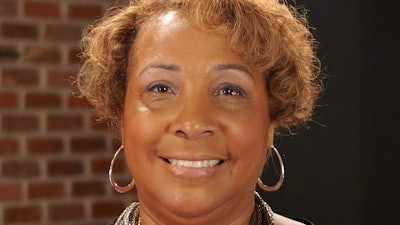Picture this: you are in a hospital setting and you witness another staff member ask a Black medical student if they need help cleaning up. The staff member assumes the medical student is the janitor. Unfortunately, experiences like these are all too common in healthcare today. Within professional environments, microaggressions persist as a pervasive and often overlooked force, representing one of the most significant challenges to equity and inclusion.
Microaggressions are often rooted in unconscious or implicit bias. These words or actions, whether we want to believe it or not, result from stereotypes we have about individuals without our conscious knowledge.
 Dr. Marcine Pickron-Davis
Dr. Marcine Pickron-Davis
Healthcare practitioners from diverse backgrounds face similar microaggressions. In fact, marginalized students in medical school report higher rates of implicit bias throughout their education, perpetuating the underrepresentation of diverse practitioners and emphasizing the need for enhanced DEI programs in medical education.
DEI leaders in healthcare continue to grapple with ongoing challenges, whether it be microaggressions, patient distrust, biased outcomes, or embedded racism. As the leader of diversity and inclusion efforts at a medical institution, I firmly believe that providing preemptive education for students – those who will go on to serve as our next generation of doctors and healthcare practitioners – is key to proactively identify and mitigate unconscious bias.
The Impact of Microaggressions in Medicine
The pervasive nature of microaggressions demands a proactive and multifaceted approach, acknowledging their impact on professionals' well-being and recognizing their far-reaching consequences on marginalized communities. By equipping medical students with strategies to navigate microaggressions, we will foster an environment that is not only inclusive, but also genuinely supportive of practitioners and patients.
Throughout my time in healthcare education and my own personal journey, I have heard from students about their experiences being the target of microaggressions. Research shows that healthcare professionals experiencing or witnessing microaggressions encounter heightened stress, reduced job satisfaction and impaired communication.
A study in the National Library of Medicine suggests that such negative experiences compromise collaborative efforts among healthcare providers, potentially causing lapses in patient care coordination and reduced adherence to clinical guidelines. Additionally, the psychological toll on professionals may compromise the ability to provide empathetic and patient-centered care.
Medical colleges nationwide are catching on and prioritizing the implementation of specialized training programs to address this. Specifically designed for medical students, these initiatives aim to equip the future healthcare workforce with essential tools to navigate and manage instances of microaggressions in the workplace.
Providing Comprehensive Education to Healthcare Professionals
In June 2020, the Office of Diversity and Community Partnerships at the Philadelphia College of Osteopathic Medicine (PCOM) launched a Microaggressions in Medicine training for all rising third year students and graduate medical education residents and interns. The training examines the dimensions of microaggressions, explores the implications of microaggressions, and equips students with strategies to navigate the occurrence of microaggressions as future healthcare practitioners. Over 1,000 students and residents to date have completed the training. 95% of students, residents and interns who completed the post-survey indicated they feel very or extremely prepared to address microaggressions in the clinical learning environment. By implementing trainings such as these, we are equipping the next generation of practitioners with the resources they need to provide empathetic and sincere care to their patients.
These trainings go beyond mere acknowledgment, providing a comprehensive exploration of the multifaceted nature of microaggressions. They aim to foster a nuanced understanding, empowering students to respond with both sensitivity and efficacy, and emphasize the broader implications of microaggressions on the well-being of the healthcare environment.
Research published in the HCA Journal of Medicine highlights that teaching frameworks and training programs within medical institutions play a pivotal role in identifying and addressing workplace microaggressions appropriately and contribute to an increase in psychological safety for all trainees. Ultimately, these programs signify a crucial step toward producing a socially conscious and culturally competent generation of healthcare professionals.
By addressing workplace microaggressions through preemptive education and specialized training programs, we pave the way for a more supportive and inclusive healthcare environment, where practitioners are equipped with the necessary tools to navigate and counteract microaggressions. These efforts are fundamental not only to the health and satisfaction of those within the profession but also to the well-being of the patients they serve.
Dr. Marcine Pickron-Davis is the chief diversity and community relations officer at Philadelphia College of Osteopathic Medicine. She is a member of the National Association of Diversity Officers in Higher Education, the Forum of Executive Women, and the Association of Black Women in Higher Education.



















